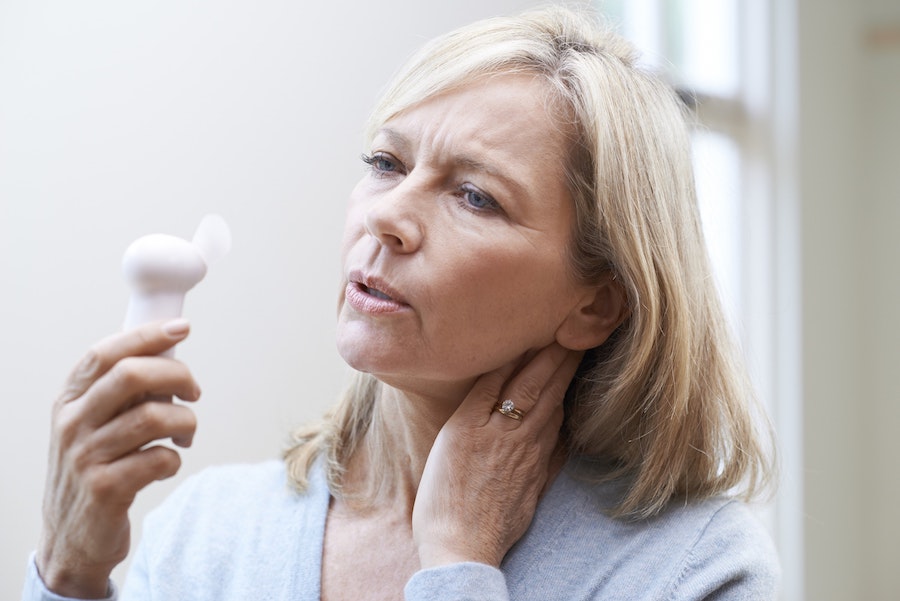On World Menopause Day: 5 myths you really need to stop believing
We weigh in on some of the most common misconceptions about the big ‘M’.
When you think about the menopause, you probably think the first tell-tale signs of its arrival are hot flushes and night sweats – and it’s understandable, that’s often the way TV and films portray it.
But while a survey by A.Vogel found that 75% of women will experience sudden feelings of heat that appear to come from nowhere, there’s a quarter that won’t experience these symptoms during the menopause at all.
View this post on Instagram
#world #worldmenopauseday #hotflushes #women #everywomen #gothroughit #support #awareness #national
This is just one of the unhelpful myths about the menopause floating around, that make the whole subject way more confusing than it needs to be.
As today marks World Menopause Day, we’ve rounded up a few more fictitious truths around the big ‘M’ that every woman should know about.
1. It only happens to older women
While a woman’s periods most commonly end between the ages of 45 and 55, plenty of women in their 20s and 30s will experience early or premature menopause. In fact, NHS figures show that around one in 100 women will experience it before they turn 40.
Premature ovarian failure is one of the main medical causes, although damage to the ovaries by chemotherapy or radiation treatments for cancer, or surgical removal of the ovaries, can also be underlying factors.
Today is #WorldMenopauseDay.
I was diagnosed with early menopause 18 months ago & have experienced several symptoms. Some days are really tough.
Don’t be embarrassed, talk with your family, friends, healthcare professional & employer.#Menopause pic.twitter.com/n3CL4nxjvY
— Angie Logan (@logan_angie) October 18, 2018
2. The symptoms last for a couple of years
Ask any woman who’s experienced the menopause and their story will be different. The average length of perimenopause (the time when the ovaries gradually begin to make less oestrogen) is four years, but for some women this stage may last only a few months.
On the other end of the spectrum, other women report their symptoms lasting much longer, and around one in every 10 women experience them for up to 12 years.
3. Hot flushes are the only symptom
While this is the most common physical symptom, you might also find you have difficulty sleeping, a reduced sex drive, dryness ‘down there’ and mood changes, such as low mood or anxiety.
As you might imagine, this combination of physical and mental symptoms can have a huge impact on a person’s daily life, which is why you should always see your GP if you’re finding them particularly difficult to manage.
4. You’ll never want to have sex again
This is a tricky one, as some women will report a dip in their libido, however, it doesn’t necessarily mean your sex life will end.
The loss of oestrogen and testosterone following menopause can lead to changes in a woman’s body and sexual drive, but on the flip side, many post-menopausal women find they enjoy the best sex of their lives as they’re free from periods and the unpredictability of monthly hormonal changes.
Is the #menopause affecting your relationship? For #WorldMenopauseDay we look at the impact on the couple #relationship and how to talk to your partner https://t.co/UvlYavozU1 pic.twitter.com/mvlb6ndewP
— Relate (@Relate_charity) October 18, 2018
5. You can stop using contraception immediately
Menopause is a natural part of ageing where a woman stops having periods and is no longer able to get pregnant naturally. However, during the perimenopause stage, which can last for several years, it’s still possible to become pregnant.
If you want to avoid late pregnancy, you should use some form of birth control until you reach menopause – which is when you’ve gone 12 full months without having your period. Experts say that women who reach menopause under 50, meanwhile, should continue to use contraception for two years after their last period.
The Press Association
Latest posts by The Press Association (see all)
- 5 new books to read this week - March 26, 2025
- 6 things a physio wishes people over 60 would stop doing - March 25, 2025
- NHS reminder to 7.5m people as Covid-19 jab booking system opens - March 25, 2025
- The truth about cholesterol – what you need to know - March 25, 2025
- Prince William calls Dame Mary Berry a ‘national treasure’ in 90th birthday message - March 24, 2025




















